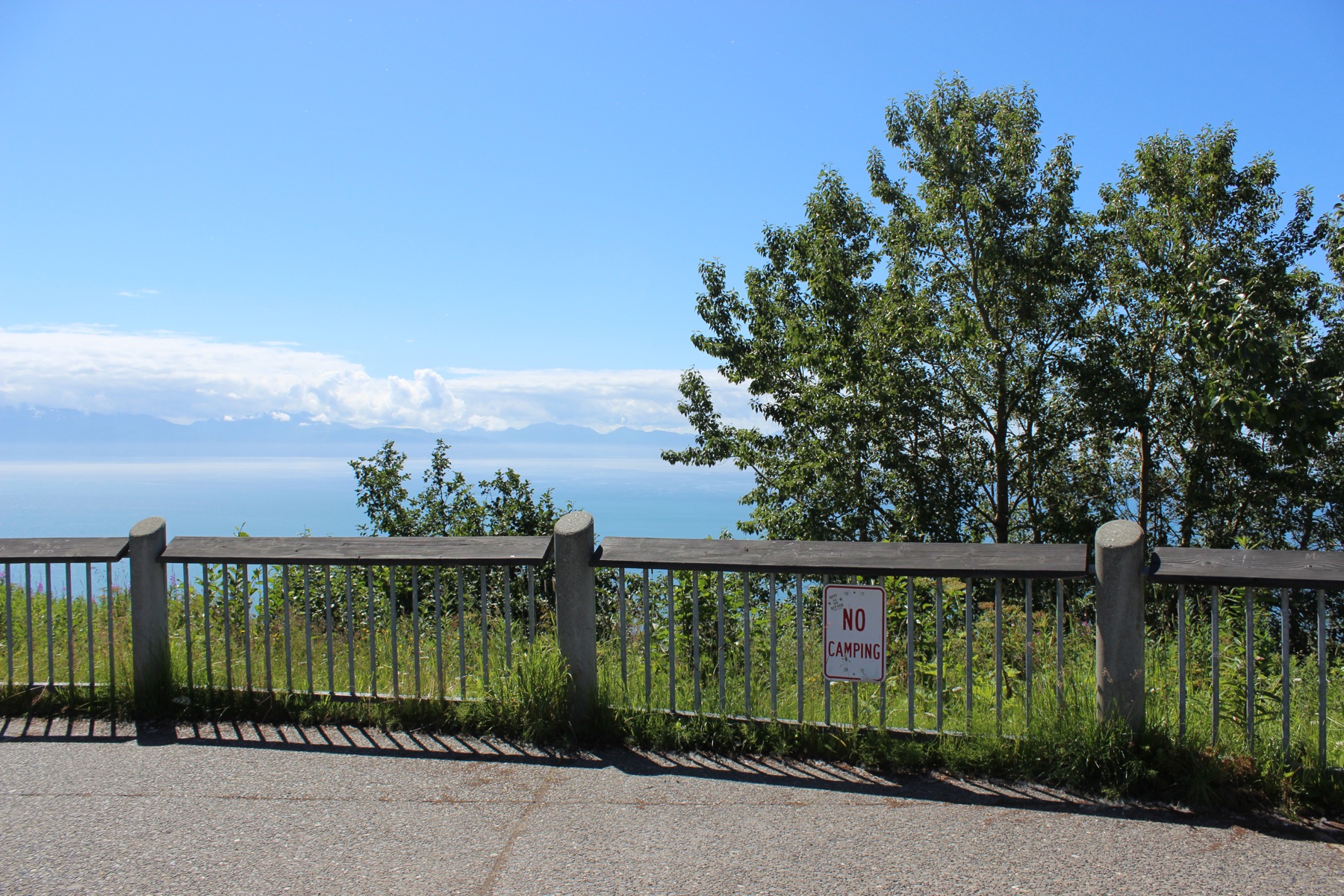Long hours of fishing near the Barren Islands over the Fourth of July weekend and a 4 a.m. arrival back in the Homer Small Boat Harbor meant a late — or early, as the case may be — start time for Mike Flyum to get on the Sterling Highway and head back to his home in Wasilla. By the time his boat was loaded on the trailer and Flyum and his fishing partner were leaving the harbor, it was about 5 a.m.
“We’d been out all day and all night fishing. … Both of us were tired,” said Flyum.
At the top of Baycrest Hill, Flyum decided for safety’s sake he’d take advantage of the pullout to get a nap before continuing on. He parked his Ford F-250 pickup, trailer and boat on the highway-side of the pullout, away from the parking spots offering views of Kachemak Bay and beyond, and he and his friend quickly fell asleep.
According to information provided by the Alaska State Troopers, “driving while drowsy, DWD, is possibly one of the most under-reported causes of highway crashes and fatalities.” Some sources estimate as many as 50 percent of all crashes are due to driver fatigue. A survey by the Centers for Disease Control and Prevention indicate as many as 7,500 fatal motor vehicle crashes in the United States each year might involve drowsy driving.
However, what seemed like the right thing to do became an eye-opening experience for Flyum.
“About 7 a.m. this dude … was tapping on the window. He said, ‘Hey, there’s no camping here. You guys have got to leave,’” said Flyum. “I said we had just got back from fishing and he said, ‘Well, you’ve got to leave,’ and he took off.”
Judging by the vehicle driven by the individual telling Flyum to move, Flyum determined it was someone working for the city of Homer Parks and Recreation Department.
“He got into his truck, went over to another vehicle, a car, and told that guy the same thing. Woke him up, told him he had to get going,” said Flyum, who took exception to being awakened from his safety nap and told to get back on the highway. “His job was to go up there and pick up trash, not to be worrying about who’s parking there, whose camping there. Just pick up trash and stop harassing people.”
Flyum said he was aware the pullout wasn’t a camping area.
“But it was a safety thing. We didn’t want to get in a wreck and hurt somebody else. If you’re tired, you pull over,” said Flyum.
The following day, Flyum called Angie Otteson, the Homer parks coordinator.
“Is that your policy, to go up there and harass people, people who come down here, spend all their money, that’s your policy? I don’t think it’s any of your business if people are parked there to camp or parked there for whatever,” Flyum said of his conversation with Otteson. “She didn’t sound too concerned, so I kind of got upset.”
After her conversation with Flyum, Otteson did speak with the employee in question.
“I said, ‘You know what, that’s a rest stop. You can’t wake people up and tell them to leave,’” said Otteson. “It’s a city-maintained area, but we don’t do enforcement on camping. Because it’s a wayside pulloff, people are pulling over for all kinds of reasons.”
Baycrest is, indeed, a city-maintained area. A sign mounted on the railing clearly states, “no camping.” A section of city code on “camping” that seems to specifically apply in this instance, says, “The presence of any person sleeping in any motor vehicles or camper units between the hours of midnight and 6 a.m. shall constitute prima facie evidence of camping,” prima facie meaning “presumed” or “upon first appearance.”
Otteson said there are instances when camping is obvious: motorhomes with pull-outs, slide-outs and stabilizers in position. However, enforcement is left to the Homer Police Department.
Flyum followed up his call to Otteson with a call to the Homer Police Department.
“I asked if it was the policy that you can’t stop and take a cat nap and was told no, if you’re tired, that’s exactly what they want you to do,” said Flyum.
In 20 years, Lt. Will Hutt of the Homer Police Department said he hasn’t known of anyone being cited for camping at the Baycrest pullout.
“It’s typically a warning,” said Hutt, who also has made contact with individuals in other no-camping areas in the city. “Also it’s up to the officer’s discretion and if they’re not bothering anybody, I would probably leave them alone.”
If an individual said they were napping because they were tired, as in Flyum’s case, Hutt said, “I think an officer would say it’s better to be safe than sorry and would be glad you pulled over.”
Aware of how city code defines “camping,” Hutt said, “We have all sorts of laws and ordinances, but they’re not strictly enforced. Hopefully we would be using discretion and looking at the totality of the situation.”
Otteson said there have been instances when she’s done what Flyum did, become tired while driving and took advantage of a pull-out area to get some rest.
As far as Baycrest goes, she said, “It’s posted up there that there’s no camping, but we really haven’t had much of an issue. I think this was just a big misunderstanding and a very ambitious employee.
For Flyum, who has had family in the Homer area since the 1930s, it was simply a matter of safety first.
“You’ve got to look at the statistics of fatal accidents of people who have fallen asleep while driving,” he said.
McKibben Jackinsky can be reached at mckibben.jackinsky@homernews.com.


